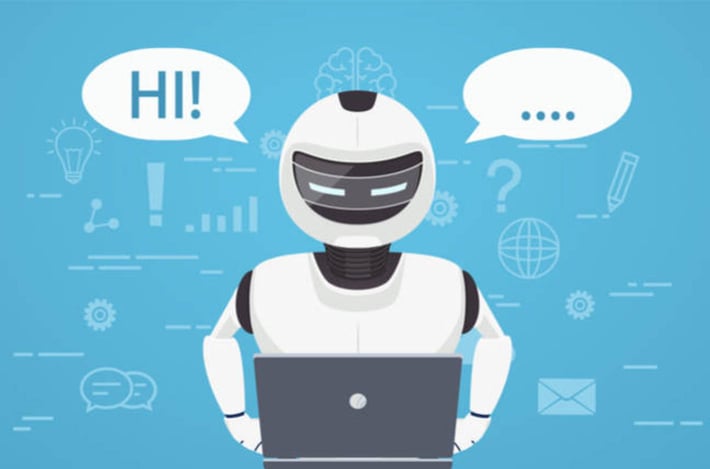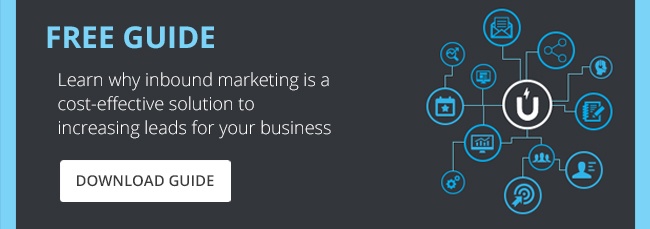Artificial Intelligence (AI) is changing everything through machine learning, data understanding, and bots. If used correctly, this technology can also help marketers grow audiences in a personal way, to the point where every interaction and engagement is clearly defined, and perhaps even predicted.
To understand how AI impacts our marketing world, we need to know the language of AI and have a basic understanding of how it works. Some important terms to become familiar with:

Algorithm
An algorithm is a formula representing the relationship between certain variables. Think of algorithms as a simple set of instructions with a finite end designed to produce an output. An every day example of an algorithm is a recipe. You have a set amount of inputs (ingredients) designed to produce a repeatable output - apple pie, for example. Machine learning programs in AI use algorithms to make predictions, and in the case of marketing, suggestions are based on algorithms that hope to target the user’s specific preferences (if website visitor 'A' visits pages for kid's short sleeve shirts an algorithm will email them coupons for kid's short sleeve shirts).
Chatbots (or “Bots”)
A chatbot is a program that runs within websites and apps that interacts directly with users to help them with simple tasks. A “conversation” happens between the user and the computer program. These are often currently used for customer support, but the applications for chat bots are growing.
Cluster
Any group of people or things that share a common characteristic. Data is combed through by AI to uncover patterns and connections that humans might not readily see. Clusters can be used to identify target segments or audiences, creating marketing opportunities through commonalities.
Cognitive Science
The broader form of study that includes AI in addition to philosophy, linguistics, psychology, neuroscience, and anthropology. All of these combine together to learn how the mind functions and, when applied to AI, how machines can simulate human thought and action.
Machine Learning
With limited need for programming, machines can teach themselves. Combing through massive amounts of data allows AI to identify patterns and groupings. This could be used to determine target audiences, decide on optimal times to send emails, or segment out groupings for deeper engagement.
Deep Learning
In this advanced version of machine learning, computers actually teach themselves with minimal programming by humans. Marketers can use deep learning to identify data and make predictions related to how consumers might behave.
Image Recognition (or “Computer Vision”)
One of the more complicated processes for machine learning, computers can be programmed to understand what is happening in an image. AI searches for patterns within images to quickly identify nuances that humans may not see.
Natural Language Processing (NLP)
This technology allows machines to determine what humans are saying, whether in text or by voice. More sophisticated programs can decipher speech in various languages, understanding not only the actual vocabulary, but also pulling out context and more hidden meanings. Sarcasm and subtlety are still difficult for AI, but advanced technology is working on it.
Neural Networks
Structured to be similar to the human brain, this AI model incorporates natural language processing and deep learning to identify faces in photos and analyse handwriting.
Semantic Analysis
A more sophisticated form of Natural Language Processing, this concept is focused on the process of stringing words together as well as the way that language is understood through cultural context. This could function as a help to create eBooks and blog posts, with the potential to replace human writers or content marketers (!). Wait, what?
Supervised Learning
This form of machine learning does not function independently, but requires human input. Data is presented into the machine and the process is supervised by a person while the computer works toward a specific outcome.
Unsupervised Learning
Requiring little or no human involvement, this type of learning allows the machine to draw conclusions on its own from patterns that it finds.
Conclusion
AI is transforming marketing by enabling personalised, data-driven engagement. From algorithms to deep learning, AI helps predict trends, optimise strategies, and enhance customer experiences. However, it’s not a replacement for human creativity. The most effective marketing blends AI insights with human intuition. By embracing AI as a tool, marketers can stay ahead and build stronger connections with their audiences.
AI is just getting started. Curious about how AI can help you drive smarter decisions and create more personalised customer experiences. Click here and Get Started!
Written by Glenn Miller
An exceptionally experienced digital marketer, proactive and future-forward thought leader, I deliver exceptional customer experiences, industry leading digital strategy and superior marketing results.
SUBSCRIBE TO OUR BLOG
SUBSCRIBE TO OUR BLOG
Popular
Categories
- Inbound Marketing (94)
- Digital Marketing Strategy (85)
- Content Marketing (27)
- Lead Management (27)
- Business Growth (26)
- HubSpot (25)
- Artificial Intelligence (AI) (22)
- Marketing Automation (20)
- CRM (19)
- Email Marketing (16)
- Sales Enablement (13)
- Referral Marketing (12)
- Customer Relationship Management (CRM) (11)
- Social Media Marketing (8)
- Blogging (7)
- Buyer Personas (7)
- Buyer Journey (6)
- Growth Driven Website Design (6)
- HubSpot Product Feature Updates (6)
- Goal Setting (5)
- Paid Media (4)
- content strategy (4)
- SEO (3)
- Influencer Marketing (2)
- Sales & CRM HUG ANZ (2)
- Conversational Marketing (1)
- Legal practice management software (1)
- User Management (1)
- training (1)



